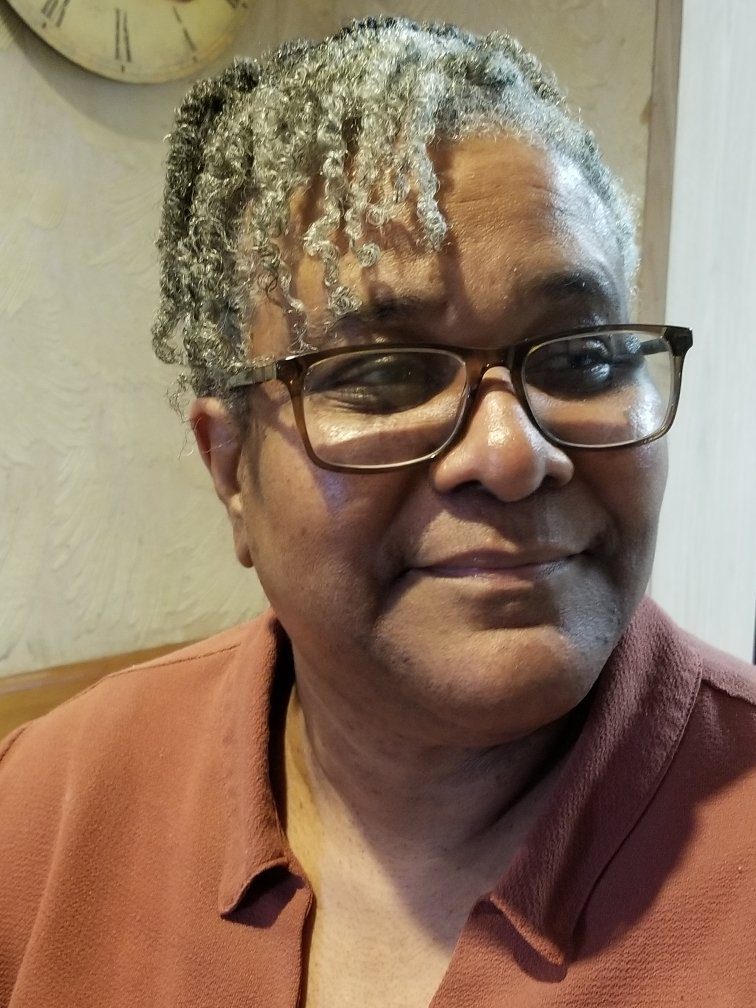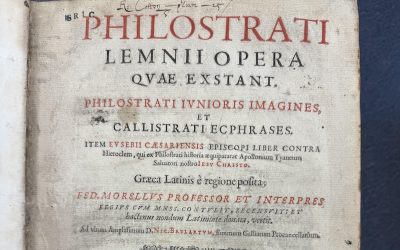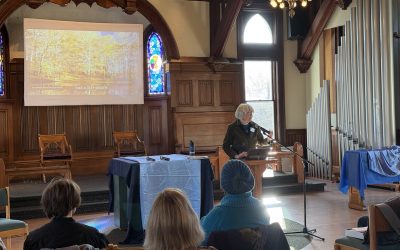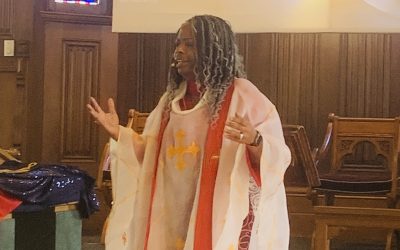The scholar brings her Caribbean voice to Drew Theological School
October 2021 – We recently sat down with Althea Spencer Miller, assistant professor of New Testament, to learn more about her life as a theological scholar, and how her Caribbean roots have shaped her voice at Drew Theological School for the past 13 years.
What led you to pursue a life as a theological scholar?
I didn’t begin with the intention of becoming an academic; this is my second career. Straight out of high school, I candidated and then trained for ordination as a presbyter in the Methodist Church in the Caribbean and Americas. All my life has been in the world of theology—first as a pastoral practitioner and now as an academic. I feel very vocational about being an academic and I regard it as contiguous with my pastoral vocation. It was while a pastor that my awareness of the academy increased. The confluence of the two created an overlap and interplay that continues to influence my academic work.
When I was fresh out of seminary—young in ministry and still in my 20’s—I attended the Oxford Institute of Methodist Theological Studies. I felt inadequately prepared for this very academic gathering. I was representing the Caribbean Methodism and noted that I lacked colleagues—I was alone and my region of the world was woefully underrepresented. Dr. Douglas M. Meeks Jr. gave the keynote address in which he offered a periodization of history. There was no consideration of the Caribbean, of colonialism, and certainly no inclusion of the place of the global peoples of color in his recitation. I was greatly perturbed and bothered. I began to think of the possibility of doing doctoral work so I could be another person who brings a Caribbean voice to the academic world.
What brought you to Drew Theological School?
Not long after I completed my dissertation, I was offered teaching positions at three seminaries. Drew Theological School was the place that had an expansive, global vision that actively incorporated the presence of international students with the possibility of reciprocal global impact. This fed into my own sense of vocation—and Drew became the self-evident place to be.
Jamaica is your land of origination and formation. How has this influenced your research interests and classroom experience?
Immensely! I was fresh out of the Caribbean and had no experience in the American education system. I was gleaning on the run. It was clear to me that in every way I was an alien in an alien land. My dissertation connected Greek epics and Biblical documents (the Acts of the Apostles) using orality as a heuristic perspective that connected the two. This positioned me to recognize and react against Walter Ong, who theorized orality in a way that I actually found offensive! Yet his work in oral psychodynamics identified cultural practices and orientation by which I recognized Jamaica was an oral culture. I deemed Ong’s dichotomization of orality and literacy to be unsustainable. I then resorted to Jamaica and other Caribbean islands to begin a culturally-based definition of orality, what I then called auto-ethnography. I developed an auto-ethnographic approach to orality, which meant that I regarded myself as an oral person, from an oral literate culture. I could then theorize orality as a competent cultural epistemological phenomenon and not the insufficient precursor to literacy.
Orality has remained fundamental to my research. My quest is for a culturally-based orality purposed as a hermeneutic for biblical interpretation. I’ve been working on theorizing orality, which proved to be longer, more difficult, and more emotionally fraught than I had anticipated. It put me in a position where my identity was at stake and that felt very vulnerable. This pursuit is congruent with my original motivation for entering the academy. I did not want to be just another academic doing academic theory, but to introduce with impact and transformative force another cultural way, the Caribbean’s, of being in the world and the intellectual histories of my peoples essential knowledge for educated persons. Because of this prospect, it seemed insufficient to focus only on orality studies. Now Africana studies is the disciplinary umbrella under which I lodge my orality explorations in hermeneutics and pedagogy.
Spencer Miller co-edited Feminist New Testament Studies: Global and Future Perspectives with Kathleen O’Brien Wicker and Musa Dube (2005) and has contributed essays as chapters in many publications. One essay that introduces her thinking on orality as a cultural phenomenon is “Creolizing Hermeneutics: A Caribbean Invitation” in Islands, Islanders, and the Bible: Ruminations (2015). Spencer Miller’s transferred her ordination to the United Methodist Church and contributes as a Minister in Residence at the Church of the Village United Methodist Church in New York.



